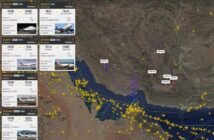English based tour operator Intrepid Travel has introduced carbon labelling on 500 itineraries, giving consumers a ‘nutrition label’ style indicator.

An Intrepid Travel report suggests that international travel could face restrictions in the form of carbon passports by 2040 due to concerns about global warning.
The report highlights the potential introduction of “personal carbon allowances” as a means to combat emissions. These allowances would be in the form of passports, requiring individuals to limit their carbon usage in accordance with the global carbon budget, which is set at 750 billion tonnes until 2050.
“One of the problems with tourism at the moment is that it is the opposite of regenerative,” said Darrell Wade, chairman of Intrepid Travel. “It’s extractive – and this cannot continue for much longer.”
Trends identified by Intrepid Travel include:
People-Positive Travel Regenerative travel will focus on social-led holidays instead of product-led. These consider the environmental and social impact. Inclusivity will also be key, with travel companies focusing on social change. Focusing on local communities will also be key, helping prevent ‘tourism leakage’, when money flows out of the destinations.
Ephemeral Escapes Pop-up hotels that combine sustainability and local craftmanship to create Ephemeral Escapes. Transient travel experiences, such as Thierry Teyssier’s 700,000 Heures hotel, already have this concept. Intrepid recently invested in this philosophy with CABN, off-grid minimalist escapes in Australia.
Enhanced Eco-Mobility AI will drive the future of transportation, with planning tools suggesting the most sustainable options and a focusing on reshaping travel hubs. Sustainable Aviation Fuel (SAF) is already being trialled and companies like Intrepid are working to eliminate unnecessary flights from itineraries. Train travel will be integral to this regenerative approach.
Real-time Footprints Carbon tracking will become even more individualised thanks to AI.
“The direct impact of climate change has long been viewed as something distant in the future. But this is no longer an impending event; it’s happening now,” Wade added “Tourism must evolve and become regenerative, as the current model is unsustainable. The clock is ticking for our planet and the future of the travel and tourism industry.”
The report discusses the need for tourism to evolve and become regenerative in light of the changing climate. It argues that travellers may need to forgo certain experiences commonly embraced today in order to manage carbon emissions.
The report, produced in collaboration with The Future Laboratory, a foresight agency, warns that popular destinations like Greece and Majorca may become too hot for summer holidays due to climate change. As a result, it predicts a shift towards cooler locations such as Belgium, Slovenia, and Poland.This report emphasizes the urgent need for action within the travel industry to address the challenges posed by climate change. Without proactive measures, the report warns of catastrophic trends continuing to develop. It calls for a more sustainable and responsible approach to tourism to mitigate the impact of global warming and ensure a more sustainable future for travel.




